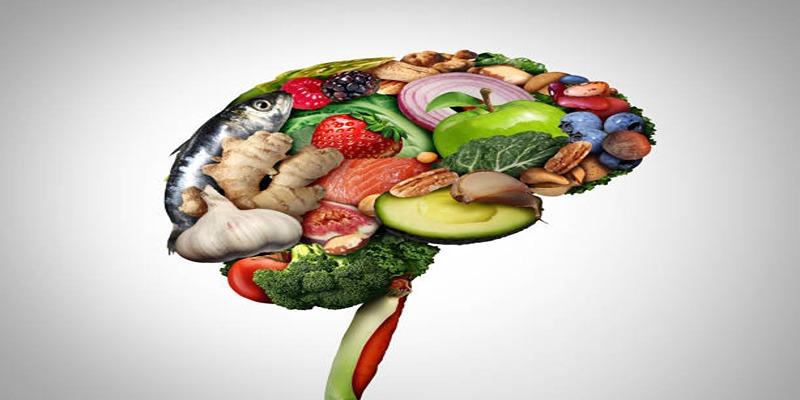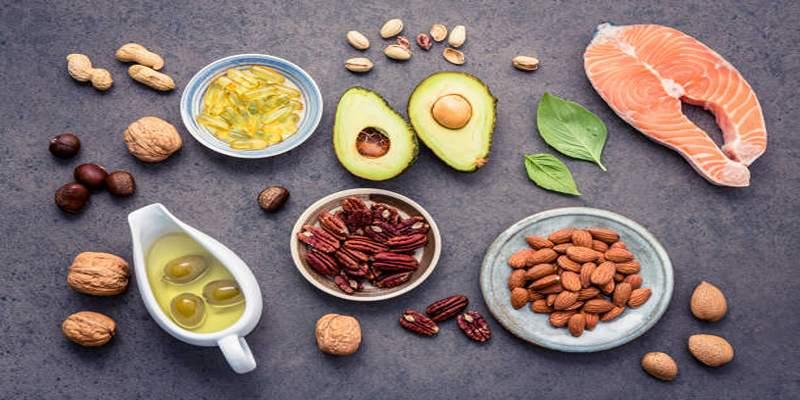Dietary factors are known to precipitate, ameliorate, or influence the course of neurodegenerative diseases. There is evidence that demonstrates the need to constantly supply the brain with nutrients in order to enable it to execute its responsibilities of storing information, learning, and focusing. Not only does a brain require nutrients to function but these nutrients also contribute to the reparative mechanisms necessary for the renewal of the organ. Knowledge about the connection between diet and cognition may help people manage their meals and use food for further brain function improvement.
Introduction to Brain Nutrition

This principle is among the foundations of which a healthy diet contributes positively to cognitive health. A component which is most important in order to have a clear minded or rather healthy brains, is nutrition and its so vital as it helps in the building and running of the this vital organ. The consumption of quality foods may enhance thinking capacity and discourage the development of neurological disorders. The main components of brain nutrition include vitamins, minerals, antioxidants and omega-3 fatty acids that cause the brain to function at its optimum.
Key Nutrients for Brain Health
Including key nutrients in your diet can significantly enhance brain health and cognitive functioning. Here's a deeper look at some of the most critical nutrients:
Omega-3 Fatty Acids
Omega-3 fatty acids are vital for optimal brain function and overall mental health. These essential fats are predominantly found in fish such as salmon, mackerel, and sardines, as well as in flaxseeds and walnuts. Omega-3s play a critical role in building brain cell membranes and have been linked to improved cognitive performance, mood regulation, and a reduction in the risk of neurodegenerative disorders like Alzheimer's disease.
Antioxidants
Antioxidants are compounds that help protect the brain against oxidative stress, which can damage cells and contribute to brain aging and cognitive decline. Foods rich in antioxidants, such as berries, dark chocolate, and leafy greens, can help neutralize free radicals, thereby reducing the overall oxidative burden on the brain. This process is crucial for maintaining the health of neurons and supporting effective brain function.
Vitamins and Minerals
Vitamins B6, B12, and E are particularly important for brain health. Vitamin B6 aids in the production of neurotransmitters, which are chemicals that transmit signals in the brain. Vitamin B12 is crucial for maintaining the health of nerve cells and is involved in DNA synthesis. Vitamin E acts as a powerful antioxidant, protecting nerve cells from damage and supporting cognitive function as we age.
Dietary Patterns and Cognitive Health

The relationship between dietary patterns and cognitive health is profound. Adopting specific diets can enhance brain function and reduce the risk of neurodegenerative diseases.
Mediterranean Diet
The Mediterranean diet is renowned for its robust benefits for brain health. It emphasizes the consumption of whole grains, fruits, vegetables, legumes, nuts, and olive oil, while allowing moderate consumption of fish and poultry. This diet is rich in healthy fats, particularly omega-3 fatty acids from fish, and antioxidants from fruits and vegetables, which collectively contribute to the reduction of oxidative stress and inflammation.
Studies have shown that individuals adhering to the Mediterranean diet experience improved memory and cognitive function, making it a powerful dietary pattern for maintaining brain health across the lifespan.
DASH Diet
The Dietary Approaches to Stop Hypertension (DASH) diet, initially designed to combat high blood pressure, has shown significant positive impacts on brain health as well. It focuses on reducing sodium intake while increasing the consumption of vegetables, fruits, whole grains, and low-fat dairy products.
The nutrient-rich profile of the DASH diet supports vascular health, which is crucial for maintaining optimal brain function. By promoting healthy blood flow to the brain, the DASH diet can help prevent cognitive decline and support mental acuity.
Comparison with Other Diets
When compared to other diets, both the Mediterranean and DASH diets stand out for their brain-boosting properties. Unlike diets high in processed foods and refined sugars, which may exacerbate cognitive decline, these diets provide a nutrient-dense approach that supports brain structure and function.
While some other diets may emphasize weight loss or specific body goals, the Mediterranean and DASH diets offer comprehensive benefits that extend to cognitive health, making them superior choices for those aiming to enhance brain performance and protect against cognitive deterioration.
Foods that Boost Brain Power
Eating foods that boost brain power can significantly enhance mental acuity and overall cognitive function. Incorporating these brain-friendly foods into your diet can provide numerous health benefits.
Blueberries
Rich in antioxidants, particularly flavonoids, blueberries support brain health by reducing oxidative stress and inflammation. Consuming blueberries has been linked to improved memory and cognitive function and may help delay brain aging.
Fatty Fish
Fatty fish such as salmon, sardines, and trout are high in omega-3 fatty acids, essential for maintaining brain cell structure and function. Regular consumption helps improve cognitive abilities, enhance memory, and reduce the risk of neurodegenerative diseases.
Leafy Greens
Vegetables like spinach, kale, and broccoli are packed with nutrients such as vitamin K, lutein, and folate, which play a role in slowing cognitive decline. They contribute to better brain function and support memory retention.
Nuts and Seeds
Nuts, especially walnuts, are rich in omega-3 fatty acids, antioxidants, and vitamin E. These compounds are vital for protecting brain cells and improving cognitive health. Seeds like flaxseeds and chia seeds also offer similar benefits.
Whole Grains
Whole grains provide a steady supply of energy, crucial for maintaining concentration and focus throughout the day. Foods like oatmeal, whole-grain bread, and brown rice help improve blood flow to the brain and support sustained cognitive performance.
Conclusion
Maintaining cognitive health is intricately linked to dietary choices. The intake of essential vitamins, minerals, and brain-friendly foods supports mental acuity and guards against degenerative diseases. Diets like the Mediterranean and DASH offer comprehensive benefits, promoting vascular function and reducing oxidative stress. Emphasizing whole, nutrient-dense foods such as leafy greens, fatty fish, and nuts can bolster brain power across the lifespan. By adopting these dietary patterns, individuals can enhance memory, improve cognitive function, and mitigate the risks associated with age-related cognitive decline.







